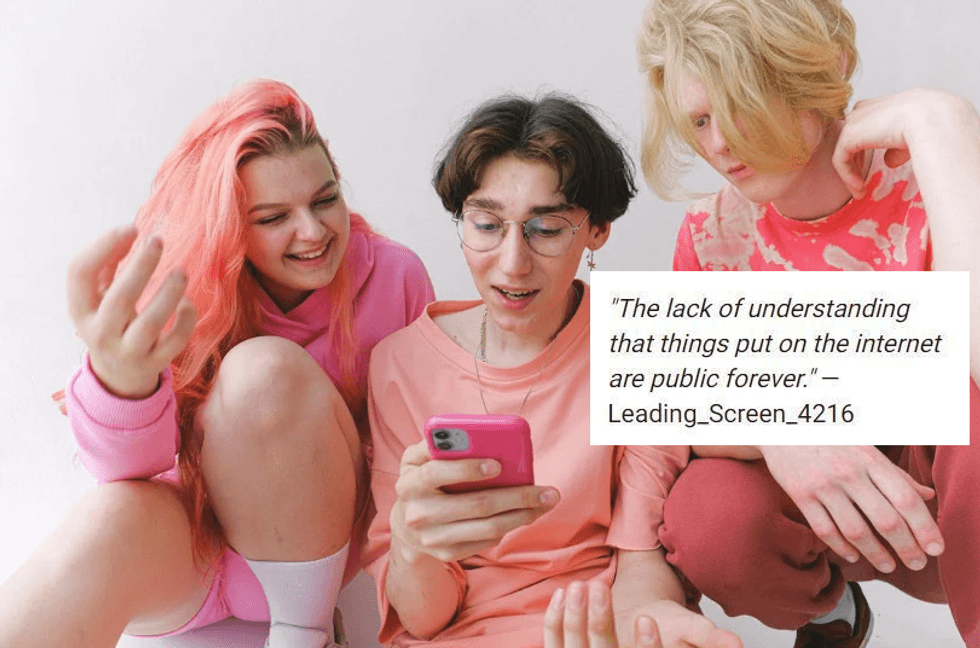There’s a lot you can tell about a person by their search history (unless they’re a murder-mystery writer, in which case no one should jump to conclusions). And our search habits on the whole can tell us a lot about ourselves as a collective as well.
For better or for worse, what we look up on the internet is an indicator of what we care about, and Google’s Year in Search report gives us some insight into what we cared about this past year.
There are reports for different countries as well as a global report. Let’s start with what my fellow Americans looked up, shall we?
To be clear, these search terms were not the “top searches” or “most searched terms” on Google, but rather the top trending searches—the search terms that had a high spike in traffic over a sustained period of time as compared to the year before.
The top 10 trending searches for 2022 overall:
- Wordle
- Election results
- Betty White
- Queen Elizabeth
- Bob Saget
- Ukraine
- Mega Millions
- Powerball numbers
- Anne Heche
- Jeffrey Dahmer
For people, we had:
- Johnny Depp
- Will Smith
- Amber Heard
- Antonio Brown
- Kari Lake
- Anna Sorokin (Delvey)
- Chris Rock
- Andrew Tate
- Adam Levine
- Serena Williams
I just don’t think there’s even a need to comment about most of these. Yikes.
Movies are fun though!
- “Encanto”
- “Thor: Love and Thunder”
- “Top Gun: Maverick”
- “The Batman”
- “Everything Everywhere All at Once”
- “Black Adam”
- “Jurassic World Dominion”
- “Black Panther: Wakanda Forever”
- “Morbius”
- “Turning Red”
Aw, remember the “Turning Red” controversies, the “Encanto” obsessions and “Top Gun: Maverick” being surprisingly amazing?
And oof, “Black Panther: Wakanda Forever.” What a beautifully done film.
Musicians and bands is an interesting mix:
- Adam Levine
- Mary J. Blige
- Lil Tjay
- Kendrick Lamar
- Migos
- Tommy Lee
- Kate Bush
- Ricky Martin
- Young Thug
- Foo Fighters
Let’s move away from entertainment and head to food.
Here are the top recipe trends in the U.S. for 2022:
- Sugo
- Cincinnati chili
- Marry me chicken
- Quick pancake
- Mango pie
- Green goddess salad
- Jennifer Aniston salad
- Grinder sandwich
- Bella Hadid sandwich
- The Bear spaghetti
Marry me chicken? I might have to Google that myself. (Don’t tell anyone, but I’m also going to Google “sugo” because I’m embarrassed to admit I have no idea what that is.)
Speaking of Googling things you don’t know—want to see what definition searches trended in 2022?
- Rupee
- Oligarch
- Cacao
- Homer
- Recession
- Canny
- Foray
- Trove
- Saute
- Tacit
So curious about what prompted most of these trends.
All of the above can be found on the published Year in Search lists, but Google also sent us some trends that didn’t make it into the list, such as:
Is it true that …
- Is it true that TikTok is posting drafts?
- Is it true that the pinky is the middle finger in China?
- Is it true that Putin has cancer?
- Is it true that coffee stunts your growth?
- Is it true that cats have nine lives?
- Is it true that Fortnite is ending?
- Is it true that Queen Elizabeth died?
- Is it true that Chuck Norris died?
- Is it true that if you dream about someone they went to sleep thinking about you?
- Is it true that Yahoo is shutting down?
What is …
- What is NATO?
- What is monkeypox?
- What is rsv?
- What is Wordle?
- What is aphasia?
- What is a NFT?
- What is a recession?
- What is vabbing?
- What is Roe v. Wade?
- What is the Wordle today?
How to be …
- How to be a good mother?
- How to be a better lover?
- How to be perfect?
- How to be an adult in relationships?
- How to be a verified fan on Ticketmaster?
- How to be a nun in BitLife?
- How to be emo?
- How to be that girl?
- How to be enough for someone?
- How to be a fashion designer in BitLife?
OK, wait. I am perpetually online and I have three teen/young adult kids. How have I never heard of BitLife when it’s in two of these “How to be” trending searches?
I kind of love “How to be an adult in relationships?” Kudos to those trying.
Interestingly, many of the global trends were similar to the U.S. searches, showing how interconnected we all are. However, the global recipes trends are very different:
1. पनीर पसंदा (paneer pasanda)
2. Bolo caseiro (homemade cake)
3. Tuzlu kurabiye (salt cookie)
4. Overnight oats
5. zimtschnecken (cinnamon rolls)
6. Irmik helvası (semolina halva)
7. панкейки (pancakes)
8. Baba ganoush
9. Bulgur pilavı (bulgur rice)
10. Pasta salad
How fun is that?
It’s been quite a year and it’s good to take a moment to remember and reflect on all that’s happened in 2022. There were a lot of big things—the war in Ukraine, the passing of Queen Elizabeth and Betty White, our collective obsession with Wordle, and more. It’s also telling what’s not in these trends—notably, most references to the COVID-19 pandemic (which we are still in, despite most people being over it at this point).
Kind of makes you wonder what trending searches 2023 will bring, doesn’t it? Let’s make “street tacos” and “world peace” happen, please.





























































